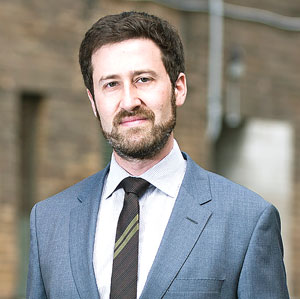A hearing panel has ordered the Law Society of Upper Canada to disclose privileged information in a long-running disciplinary proceeding against a lawyer.

In a recent decision,
Law Society of Upper Canada v. Savone, the law society’s hearing tribunal division determined the regulator must produce documents it had identified as privileged that could be relevant to its proceedings against Ottawa real estate lawyer Luigi Savone.
But the panel stopped short of forcing the law society to disclose internal communications about its investigation into Savone, who is facing allegations of misconduct related to 12 real estate transactions that occurred between 2000 and 2003.
Last year, the Divisional Court ruled that a law society hearing panel had erred when it refused to disclose certain files that could have been relevant to the proceedings.
The files in question were those of lawyers who had represented purchasers in the allegedly fraudulent transactions. Savone had represented the vendor.
The law society disclosed some information from the relevant files last summer after the Divisional Court decision, but it refused to disclose information it identified as privileged.
“It’s important to consider that the law society has obligations to disclose and privilege can’t always be claimed in order to shield information that would otherwise be of relevance and benefit to a person before a tribunal,” says Joseph Neuberger, of Neuberger & Partners LLP, who was not involved in the proceedings.
“Not everybody will be in the same circumstances as this gentleman, but it certainly speaks well about greater transparency and greater disclosure so a person before a tribunal will have a more robust ability to defend themselves.”
Savone had asked that the law society either stay the proceedings for delay or that he be granted greater disclosure. The appeals panel refused to throw out the proceedings, but it granted disclosure of the privileged information.
Lawyers say this is one of the first administrative tribunals that has dealt with the issue of delays, following the Supreme Court of Canada’s 2016 decision in
R. v. Jordan, which capped delays in the courts.
While the
Jordan decision does not apply to disciplinary proceedings at the law society, Daniel Naymark, of Naymark Law, says he expects the issue of delays in matters before administrative tribunals could soon find its way up through the courts.
“I wouldn’t be surprised to see more decisions by administrative tribunals grappling with whether and how to apply the animating principles of
Jordan in the disciplinary context, and I wouldn’t be surprised to see the courts weighing in to offer direction to tribunals in the near future,” he says.
In the decision, the panel considered
Blencoe v. British Columbia, a leading Supreme Court of Canada decision, in order to determine whether delays would warrant a stay of proceedings in administrative tribunals.
That decision’s analysis specified two grounds for determining whether a stay was warranted. These were if an “inordinate or clearly unacceptable delay impugns the fairness of the hearing” or if the delay causes significant harm to the lawyer or stigma to the lawyer’s reputation.
Naymark says this approach also involves parsing who is to blame for the delay.
He says the tribunal’s hands were tied by the jurisprudence, but it remains to be seen whether courts will decide that administrative tribunals should adopt similar tests such as that in
Jordan or continue to use the earlier style of analysis.
“It’s inevitable that this is going to be a subject of attention,” he says.
Neuberger, however, says he doubts the issue will go up through the courts as the test in Blencoe is an appropriate test for administrative discipline tribunals, as it does not set out the arbitrary timelines of
Jordan.
The law society first started investigating Savone in 2007 and commenced proceedings against him in 2011. The law society alleged that Savone had knowingly participated in fraudulent real estate transactions.
After refusing an initial motion for a stay because of delay and his original requests for disclosure, a hearing panel found he had knowingly assisted in the fraud and revoked his licence.
Savone appealed to the law society’s appeal division, which ordered a new hearing as the hearing panel had erred in dismissing Savone’s request for additional disclosure.
The Divisional Court then echoed that decision, dismissing an appeal by the law society of the appeal division’s finding. Lawyers said this Divisional Court decision could push the law society to rethink its approach to disclosure in disciplinary proceedings.
Brian Radnoff, one of the lawyers representing Savone and a partner at Lerners LLP, says his client is considering his options and that there will either be an appeal or the hearing will proceed.
“We’re pleased that we finally have disclosure of the files from the law society that were ordered to be disclosed,” he says.
When reached for comment, Susan Tonkin, a spokeswoman for the Law Society of Upper Canada, said the reasons speak for themselves.
May 29th at 4:00 pm: This story has been changed to reflect that a hearing panel ordered the decision about disclosing privileged information.

 In a recent decision, Law Society of Upper Canada v. Savone, the law society’s hearing tribunal division determined the regulator must produce documents it had identified as privileged that could be relevant to its proceedings against Ottawa real estate lawyer Luigi Savone.
In a recent decision, Law Society of Upper Canada v. Savone, the law society’s hearing tribunal division determined the regulator must produce documents it had identified as privileged that could be relevant to its proceedings against Ottawa real estate lawyer Luigi Savone.